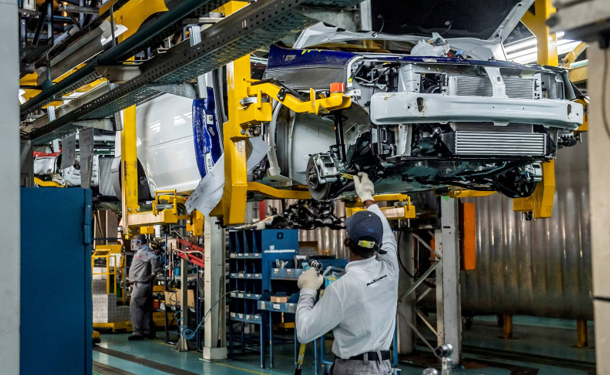In 2024, South Africa’s automotive industry is witnessing a notable shift towards car subscription and leasing services, as highlighted by AutoTrader. These innovative financial models provide alternative avenues for vehicle ownership beyond traditional cash payments or bank loans. Leasing allows consumers to drive new vehicles every few years without the hassle of selling, while car subscriptions further simplify the process by bundling insurance and maintenance costs into a single monthly fee.
According to AutoTrader CEO George Mienie, these flexible and convenient options are poised to disrupt traditional car ownership and financing structures this year.
Boost in Online Car Shopping
The trend of online car shopping is expected to boom in 2024, driven by consumers’ increasing demand for convenience, efficiency, and safety. Annual visits to the AutoTrader website have surged by 97% since 2019, reflecting a growing preference for researching, comparing, and purchasing vehicles from home. Dealerships are enhancing their online presence with virtual tours, online negotiations, and home delivery services.
As digital infrastructure improves and consumer trust in online transactions strengthens, this trend is likely to accelerate further.
Growth of Hybrid and Electric Vehicles
South Africa is set to see a significant rise in hybrid (HEV) and electric vehicles (EV) on its roads by the end of 2024. The decreasing costs of HEVs and EVs, advancements in battery technology, and a broader range of available models are contributing to this shift. Additionally, many motorists are now more conscious of their carbon footprints.
The push for sustainability in vehicle production is prompting South African manufacturers to adopt greener practices and accelerate decarbonisation. Consequently, the vehicle servicing industry must adapt to the different maintenance needs of HEVs and EVs by upskilling their workers.
Increasing Reliance on Shared Mobility
Shared mobility options, such as ride-hailing apps like Uber and Bolt, and car-sharing platforms including Mini Sharing, are expected to become more prevalent in South Africa throughout 2024. With urbanisation on the rise, shared mobility offers a convenient and cost-effective alternative to car ownership. This trend presents new opportunities for automotive companies to diversify their services and meet the evolving needs of urban dwellers.
Customisation and Personalisation in the Premium Segment
In 2024, customisation and personalisation will be key themes, especially in the premium vehicle segment. Advanced manufacturing technologies, such as 3D printing, enable automotive companies to offer more personalised options and features. This trend is driven by consumers’ desire for unique driving experiences. By leveraging these technologies, South African automotive companies can cater to the growing demand for personalised vehicles.
Subprime Market Inclusion
Leasing and subscription models are also making car ownership more accessible for subprime consumers who may struggle to obtain traditional financing. By providing these individuals with the means to own a vehicle, these services help enhance their productivity and economic contribution. Companies like Toyota’s Kinto One and Avis’ iLease are leading this initiative, with Kinto One already placing over 2,000 vehicles on South African roads since its launch in mid-2022.
As the automotive landscape in South Africa continues to evolve, these trends signify a move towards more flexible, sustainable, and customer-centric solutions. Businesses and consumers alike are embracing these changes, paving the way for a dynamic and innovative future in the automotive industry.





